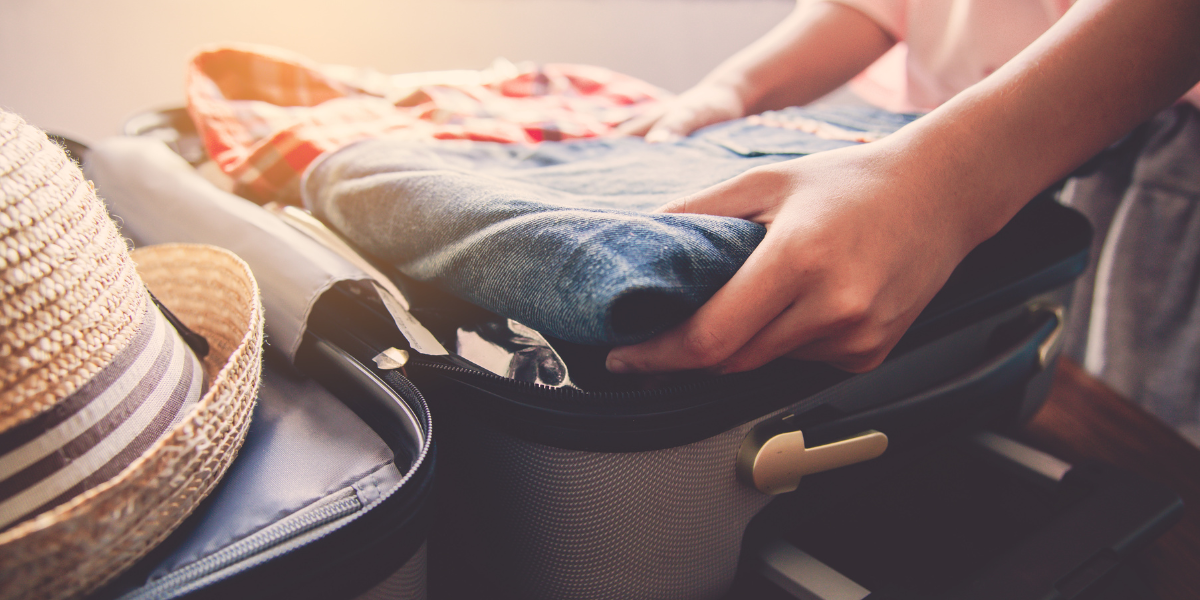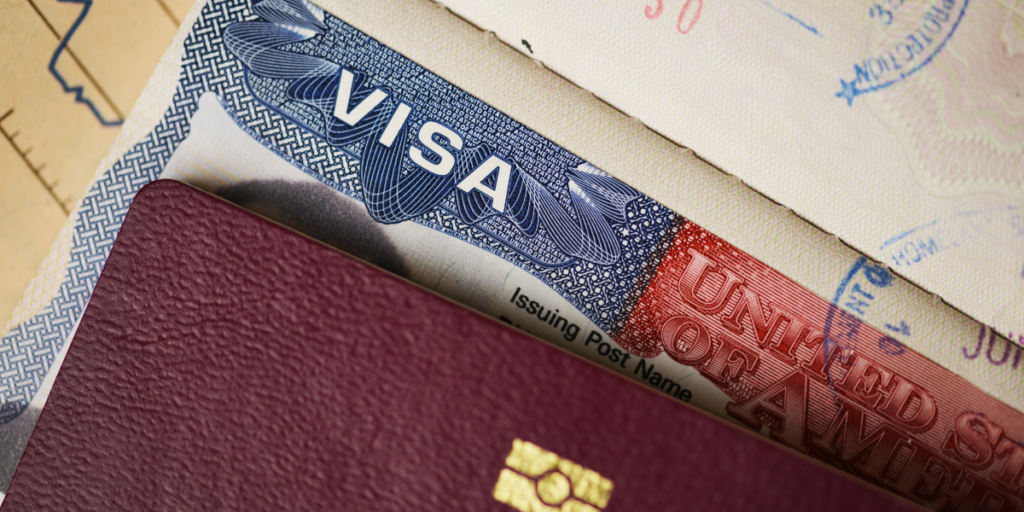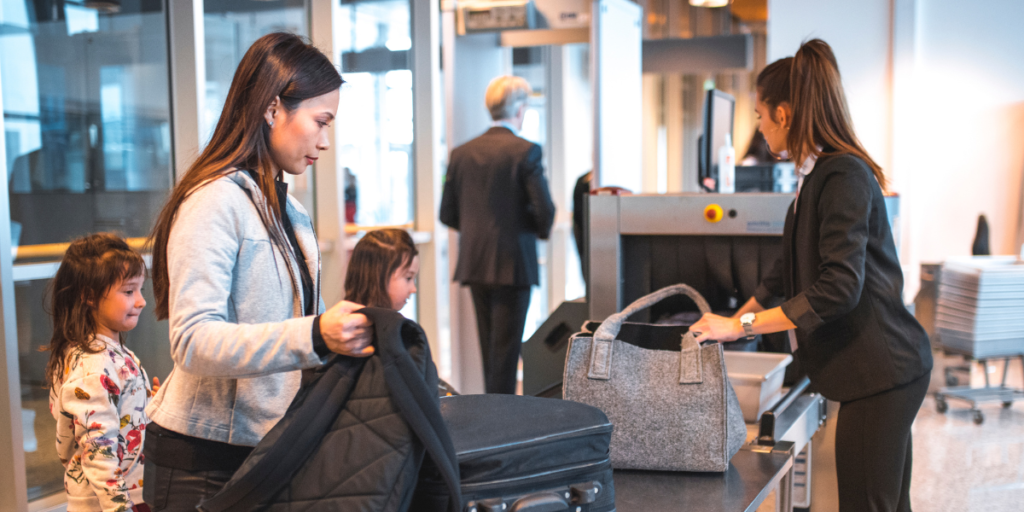Key Takeaways:
- Thorough Preparation Essentials: Discover key tips on documentation, packing, and finances to ensure a smooth international flight.
- In-Flight Comfort and Health: Learn simple tricks to stay comfortable and avoid jet lag on long-haul flights.
- Final Departure Preparations: Get last-minute reminders and tips for stress-free travel on the day of departure.
Are you gearing up for an international adventure but feeling overwhelmed by all the preparation? From navigating visa requirements to packing smartly and ensuring a smooth in-flight experience, getting ready for a long-haul journey involves more than just booking a ticket. Just like setting up for a good night’s rest, preparing for an international flight requires a balanced approach—covering everything from essential documents to in-flight comfort.
At Repose, we know a thing or two about preparing for rest, whether it’s helping you unwind for the night with our premium Melatonin Gummies or ensuring you arrive refreshed and ready to take on a new destination. We’re committed to creating high-quality, health-focused products designed to help you relax, recharge, and enjoy life’s moments, no matter where you are. Our products are crafted with care and backed by industry expertise, helping you find peace in every phase of your day.
In this guide, we’ll walk you through everything you need to know to prepare for an international flight. From essential tips to packing strategies, we’ve got you covered so you can focus on what truly matters: enjoying your journey.
Essential Tips For A Smooth International Flight Experience
Preparing for an international flight can feel overwhelming, but with a few practical steps, you can ensure a smooth experience from start to finish. Here are the key tips to consider before embarking on your journey:
- Check Passport and Visa Requirements Early: Ensure your passport is valid for at least six months beyond your travel dates, as many countries require this. Check visa requirements for your destination and apply early if needed, as processing times vary widely.
- Book Flights in Advance and Confirm Baggage Allowances: International flights tend to fill up quickly, especially during peak seasons, so booking early often means better prices and seat selection. Double-check baggage allowances to avoid surprises, as policies differ between airlines.
- Arrange Travel Insurance: Protect yourself against potential travel issues like cancellations, delays, and medical emergencies abroad by purchasing comprehensive travel insurance.
- Make Copies of Important Documents: Having physical and digital copies of essential documents (passport, visa, travel insurance, and flight tickets) can be a lifesaver if anything goes missing. Store copies in a separate bag or online for easy access.
- Plan and Pack Essentials in Carry-On: Bring necessary items like medications, chargers, travel pillows, earplugs, and an extra outfit in your carry-on. These items are invaluable if your checked baggage is delayed or during long layovers.
- Prepare for Security Screening: Be ready for security by packing liquids under 100ml in a clear bag and placing electronics where they’re easy to remove. Familiarize yourself with prohibited items to avoid delays.
- Stay Informed About Health and Safety Measures: Research COVID-19 guidelines, vaccination requirements, and any health advisories for your destination. Some countries may still have specific health protocols, so being informed ensures a smoother process.
- Exchange Some Currency in Advance: Having local currency on hand can be helpful for immediate expenses, like transportation and food. Many airports and banks offer currency exchange, but researching exchange rates beforehand can help you find the best deal.
- Consider Jet Lag Preparation: Begin adjusting your sleep schedule a few days before your trip, especially for destinations in different time zones. Small adjustments can help reduce jet lag, so you’re ready to explore upon arrival.
Ease into relaxation with Repose’s Heated Eye Mask – perfect for soothing tired eyes after a long flight or a busy day. Try it now for ultimate comfort and rest!
Understanding Entry Requirements And Visa Needs
Traveling internationally requires a solid understanding of each destination’s entry requirements and visa needs. Failing to prepare in advance can lead to delays or even denial at the border. Here’s a comprehensive guide to ensure a seamless arrival at your destination.
Research Visa Requirements For Your Destination
Visa requirements vary based on the country, your nationality, and the purpose of your visit, whether for tourism, work, or study. To determine what’s needed, visit official government websites or consult with your local embassy for the latest information. Taking this step minimizes the risk of unexpected issues and ensures you’re aware of all necessary documentation.
Apply For Visas Well In Advance
Applying for a visa as early as possible is crucial, especially if your destination has strict entry regulations or if you’re traveling during peak season. While some countries offer visas on arrival, many require a prior application, which can take several weeks or even months to process. Early preparation can save you from last-minute stress and secure your entry well ahead of your trip.
Check For Additional Documentation Requirements
Beyond a visa, some countries mandate additional documentation, such as proof of onward travel, accommodation bookings, or evidence of sufficient funds to support your stay. Having these documents organized in advance prevents delays and demonstrates that you meet the country’s entry conditions, making the arrival process smoother.
Stay Informed On Electronic Travel Authorizations (ETAs)
Electronic travel authorizations, such as the U.S. ESTA and Canada’s eTA, provide a more streamlined alternative to traditional visas but are still essential for entry. Though often faster to process, ETAs are mandatory, and travelers must apply before departure. Familiarize yourself with your destination’s specific requirements to avoid unnecessary complications.
Verify Passport Validity And Expiry Requirements
Passport validity is a critical consideration, with many countries requiring it to be valid for at least six months beyond your planned stay. Check your destination’s consulate for the latest regulations on passport validity and renewal to ensure compliance and avoid last-minute surprises at immigration.
Packing And Baggage: What You Need For International Travel
Packing for an international journey involves strategic planning to balance convenience, organization, and adherence to airline regulations. By focusing on essential items, understanding baggage rules, and preparing for in-flight comfort, you can ensure a smoother travel experience and avoid unnecessary hassles.
Understand Baggage Allowances For Your Airline
Each airline has unique policies concerning carry-on and checked baggage, which can vary widely in terms of weight limits, dimensions, and additional fees. Review the requirements for all airlines involved in your journey, especially if you have connecting flights, to prevent unexpected charges or inconveniences. Knowing these details in advance helps avoid last-minute surprises and ensures your bags comply with all policies.
Use A Packing List To Organize Essentials
Creating a packing list is essential for staying organized and making sure you don’t overlook important items. Prioritize must-haves like clothing, toiletries, medications, and electronic devices, which are crucial for comfort and convenience. Opt for versatile clothing that can be mixed and matched, saving space in your luggage while allowing for different outfit combinations.
Pack According To Weather And Culture Of Your Destination
Research the climate and cultural norms of your destination to make informed packing choices. Certain regions may require conservative attire or clothing suited for extreme weather conditions, so being prepared can enhance your comfort and respect for local customs. Packing with these factors in mind ensures you’re well-equipped for the environment and any social expectations.
Secure Important Items In Your Carry-On
Place valuables and critical items, such as travel documents, medications, electronics, and an extra outfit, in your carry-on. If your checked baggage is delayed or lost, having these essentials on hand allows you to continue your journey without significant disruption. This approach provides peace of mind and convenience in case of any baggage mishaps.
Optimize Space With Packing Organizers
Utilize packing cubes, compression bags, or rolling techniques to maximize suitcase space while keeping items neatly arranged. These tools not only help fit more into your luggage but also make it easier to locate specific items without the need to unpack everything. Staying organized in this way can simplify packing and unpacking, particularly for multi-stop trips.
Prepare A Small Bag Of In-Flight Essentials
For longer flights, consider packing a small in-flight kit with comfort items such as a travel pillow, earplugs, eye mask, snacks, and hand sanitizer. These essentials can enhance your onboard experience, allowing you to relax and stay refreshed throughout the flight. Having a dedicated kit within reach reduces the need to access your main carry-on repeatedly.
Consider Baggage Insurance For Valuable Items
If you’re traveling with high-value or fragile items, baggage insurance can be a wise investment. This coverage offers protection in case of lost, stolen, or damaged luggage, providing an extra layer of security and peace of mind. Understanding your insurance options allows you to travel confidently, knowing your belongings are protected.
Tips For In-Flight Comfort And Health
Long international flights can be challenging on the body and mind. Following these tips can help you stay comfortable, healthy, and rested throughout the journey.
Stay Hydrated During The Flight
The air inside airplanes is usually dry, which can lead to dehydration. Drink plenty of water before and during the flight, and try to avoid caffeine and alcohol, as they can further dehydrate you.
Move Regularly To Prevent Stiffness
Sitting for long periods can cause stiffness and increase the risk of blood clots. Take short walks around the cabin or do some light stretching every couple of hours to keep your circulation flowing.
Pack Snacks And Light Meals
Airplane food isn’t always predictable, and it’s often high in salt and low in nutrients. Bringing your own healthy snacks or light meals can help you avoid unnecessary discomfort and maintain energy levels.
Bring Travel Accessories For Better Sleep
Sleep can be hard to come by on a plane, so packing items like a neck pillow, eye mask, and noise-canceling headphones can make a big difference. These accessories can block out light and noise, making it easier to rest.
Practice Good Hygiene And Sanitation
Pack hand sanitizer and sanitizing wipes to clean your seat area, tray table, and armrests. Keeping your hands clean can help reduce your chances of catching any germs during the flight.
Use Compression Socks For Leg Health
Compression socks are useful for reducing the risk of blood clots and minimizing swelling in the legs and feet, especially on long flights. They can also enhance circulation and reduce muscle fatigue.
Adjust Your Schedule To Minimize Jet Lag
Try to align your sleep schedule with your destination time zone a few days before your flight. During the flight, consider adjusting your meal and sleep times to match your arrival destination, which can help ease the effects of jet lag.
Final Preparations Before You Leave For The Airport
Preparing for departure on the day of your flight can often feel overwhelming, but taking a few thoughtful steps can transform a stressful experience into a smooth journey. From confirming travel details to organizing essentials, these final preparations will help ensure you’re ready for a seamless departure and an enjoyable start to your trip.
Double-Check All Travel Documents
Verify that you have all necessary travel documents, including your passport, visa (if required), boarding pass, and any health-related documents like vaccination certificates. Keeping these items organized in a secure travel wallet or pouch allows for easy access and reduces stress during check-in and security procedures. Ensuring all documents are up to date and readily available will make the start of your journey more efficient.
Confirm Flight Details And Transportation Plans
Before heading to the airport, check your flight status for any last-minute updates, such as delays or gate changes. Confirming your transportation arrangements to the airport is equally important; plan to arrive at least two to three hours before an international flight to give yourself ample time. This step helps avoid unnecessary delays and ensures you’re at the airport with plenty of time for pre-flight procedures.
Charge Devices And Pack Portable Chargers
Ensuring all electronic devices, such as your phone, tablet, and portable chargers, are fully charged before leaving can be crucial for a smooth travel experience. These devices may be needed for accessing digital tickets, directions, or in-flight entertainment. Packing an additional portable charger provides extra security, ensuring you have battery life throughout your journey, especially during long-haul flights or layovers.
Have Local Currency Ready For Immediate Needs
Having a small amount of local currency accessible can be particularly helpful for initial expenses, such as transportation or food, upon arrival. This is especially useful if you arrive late at night when currency exchange services may be closed. Preparing some local cash ensures you’re ready for any immediate expenses, providing convenience and reducing potential stress at your destination.
Dress Comfortably For The Journey
Selecting comfortable, layered clothing allows you to adapt to the changing temperatures at the airport and on the plane. Wearing slip-on shoes can make the security process easier and more efficient, while layers let you adjust for both warm and cool environments. Choosing comfort over style can significantly enhance your experience, particularly during long-haul flights.
Prepare Your Home Before Departure
If you’re planning an extended trip, take care of essential tasks at home, such as pausing mail delivery, arranging for pet care, and setting timers for lights to maintain a lived-in appearance. Securing your home with these small steps can provide peace of mind while you’re away, allowing you to focus on enjoying your travels without worrying about home security.
Arrive Early And Go Through Security
Arriving at the airport early provides a buffer for unexpected delays and ensures you have plenty of time to complete security checks. Once you’re through security, locate your gate and take a few moments to relax, grab a snack, or prepare for boarding. A calm, well-paced approach to departure can make the experience more pleasant and stress-free, setting a positive tone for your trip.
Final Thoughts
Preparing for an international flight can seem like a daunting task, but taking the time to organize each aspect of your journey can make the experience far more enjoyable. By following these steps—ensuring all documents are in order, packing smartly, planning for comfort and health, and staying aware of entry requirements—you’ll be set up for a smooth, stress-free travel experience.
Remember that each trip is a unique adventure, so a little flexibility and patience can go a long way. Embrace the journey, and enjoy the new experiences that come with traveling internationally. Safe travels!
Read also:
- How a Lip Scrub Can Heal and Restore Black Lips
- The Top Facial Toner for Sensitive Skin Types
- Discover the Perfect Lip Scrub for Moisturized Lips
Frequently Asked Questions About How To Prepare For An International Flight
What is the best time to book an international flight?
Generally, the best time to book international flights is about 5-6 months in advance. This helps you find better rates and ensures seat availability, especially during peak travel seasons.
How can I get over jet lag quickly after an international flight?
To combat jet lag, try adjusting your sleep schedule a few days before departure. Staying hydrated, limiting caffeine, and getting sunlight exposure upon arrival can also help reset your internal clock.
Do I need travel insurance for an international flight?
While not mandatory, travel insurance is highly recommended for international trips as it can cover unexpected situations like medical emergencies, lost luggage, and cancellations.
What are some common mistakes to avoid before an international flight?
Forgetting to check passport validity, overlooking visa requirements, and underestimating travel times to the airport are common mistakes. Planning ahead can help avoid these pitfalls.
Are there specific foods to avoid before a long flight?
Yes, avoid salty foods, alcohol, and caffeine before and during the flight, as these can cause dehydration. Eating lighter, balanced meals can help you feel better during the journey.
How much time should I allow for a layover on an international flight?
A layover of at least 1.5 to 2 hours is advisable for international flights, especially if you need to go through customs and security checks before boarding the next leg of your journey.
Can I bring my own food on an international flight?
Yes, bringing your own snacks is allowed, but remember that customs regulations may restrict certain food items upon arrival, so check the rules for your destination country.
How should I handle currency exchange for international travel?
It’s smart to exchange some currency before you travel to avoid airport fees. Many travelers prefer using a credit card with no foreign transaction fees to reduce currency conversion costs abroad.
Are there any specific tips for traveling with children on an international flight?
Pack plenty of snacks, activities, and comfort items for kids. Boarding early, selecting kid-friendly seats, and planning rest breaks can also make the journey smoother for families.
How can I keep my devices charged on a long international flight?
Bring a portable charger and ensure that all devices are fully charged before departure. Many airlines also provide USB or power outlets on long-haul flights, but it’s best not to rely solely on these options.










